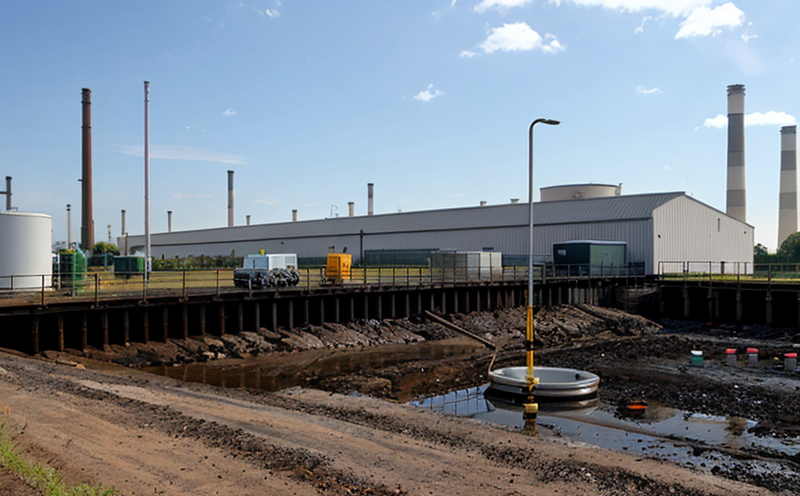ISO 11095 Total Suspended Particulates TSP Monitoring Test in Industry
The ISO 11095 standard is a crucial tool for industrial sites seeking to monitor and control air quality, particularly focusing on total suspended particulates (TSP). These fine particles can have significant impacts on human health when present in excessive quantities. This service provides comprehensive testing and monitoring of TSP levels according to the ISO 11095 protocol.
The importance of this test extends beyond mere compliance with industry regulations; it plays a pivotal role in ensuring workplace safety, protecting public health, and maintaining environmental sustainability. Industries such as manufacturing, construction, and mining are particularly susceptible to high TSP levels due to their processes involving particulate generation.
Our laboratory utilizes advanced equipment and methodologies to conduct these tests accurately and efficiently. We employ high-quality air sampling devices that ensure precise measurement of TSP concentrations in different environments. The results are reported comprehensively, providing clients with actionable insights into the quality of air in their industrial sites.
The process begins with a detailed site assessment to understand the specific conditions under which measurements will be taken. This includes identifying potential sources of particulate matter and assessing prevailing wind patterns, among other factors. Once the baseline data is established, our team proceeds with regular monitoring at predetermined intervals or during specified events that could affect TSP levels.
During testing, air samples are collected using specialized samplers which follow the ISO 11095 protocol for sampling and analysis of total suspended particles. After collection, these samples undergo rigorous laboratory analysis to determine their concentration levels accurately. Our technicians use state-of-the-art analytical instruments capable of detecting even minute amounts of particulate matter.
The findings from this testing are then summarized into detailed reports that outline current TSP concentrations and trends over time if multiple readings have been taken. These reports serve not only as compliance documents but also as valuable tools for identifying areas where improvements can be made within the facility.
For instance, if high levels of certain types of particulates are detected, our experts recommend appropriate mitigation strategies tailored to each unique situation. This might involve adjusting operational procedures slightly or implementing more robust dust control measures such as wetting down surfaces before work begins.
Why It Matters
Monitoring TSP according to ISO standards is essential for several reasons:
- Health and Safety: Excessive exposure to particulate matter can lead to respiratory illnesses, cardiovascular diseases, and other serious health problems. By keeping track of TSP levels through regular monitoring, employers can ensure that their workspaces remain safe environments for all employees.
- Regulatory Compliance: Many countries have set limits on acceptable concentrations of various pollutants in the air, including total suspended particulates. Adhering to these standards helps companies avoid fines and penalties associated with non-compliance.
- Sustainability Initiatives: Reducing emissions from industrial activities contributes positively towards sustainable development goals by minimizing environmental impact. Accurate monitoring allows organizations to identify opportunities for improvement in their green practices.
Scope and Methodology
| Parameter | Description |
|---|---|
| TSP Sampling Device | A portable, hand-held device designed specifically for collecting air samples according to ISO 11095 guidelines. |
| Sample Preservation | The collected sample must be kept under controlled conditions until it can be analyzed in the laboratory. |
| Laboratory Analysis | Upon arrival at our facility, samples undergo detailed analysis using advanced analytical equipment. |
Competitive Advantage and Market Impact
Becoming a leader in ISO 11095 TSP monitoring offers numerous advantages for businesses operating within the industrial sector:
- Enhanced Reputation: Companies that demonstrate proactive measures towards maintaining clean air are viewed favorably by consumers and stakeholders alike.
- Increased Efficiency: Understanding where improvements need to be made allows for more efficient resource allocation, leading to cost savings in the long run.
- Promotion of Brand Image: Adopting best practices like those outlined by ISO standards helps reinforce a company's commitment to excellence and innovation.





